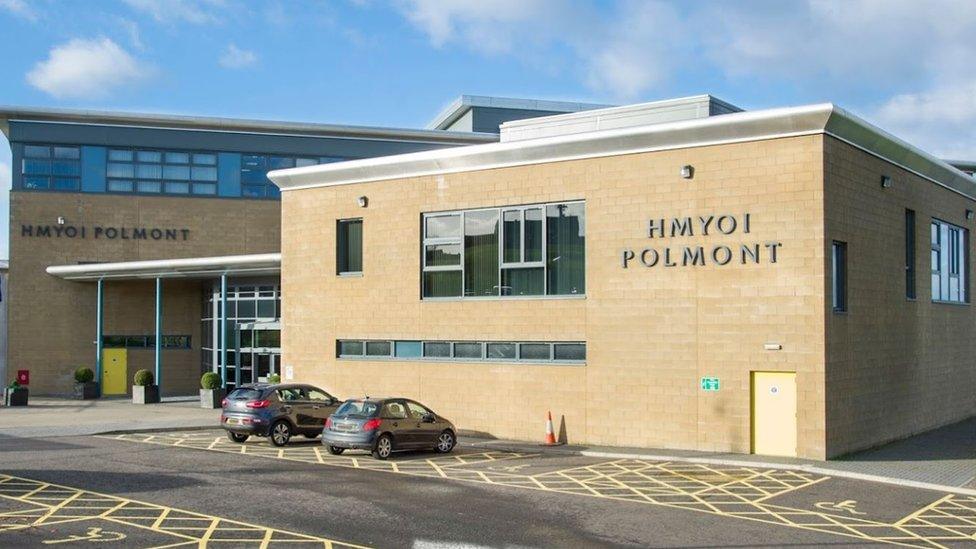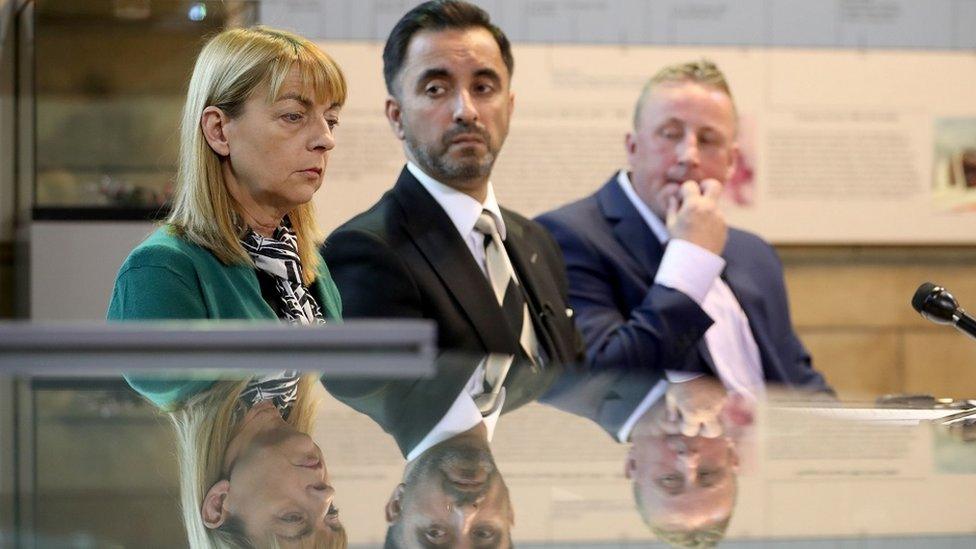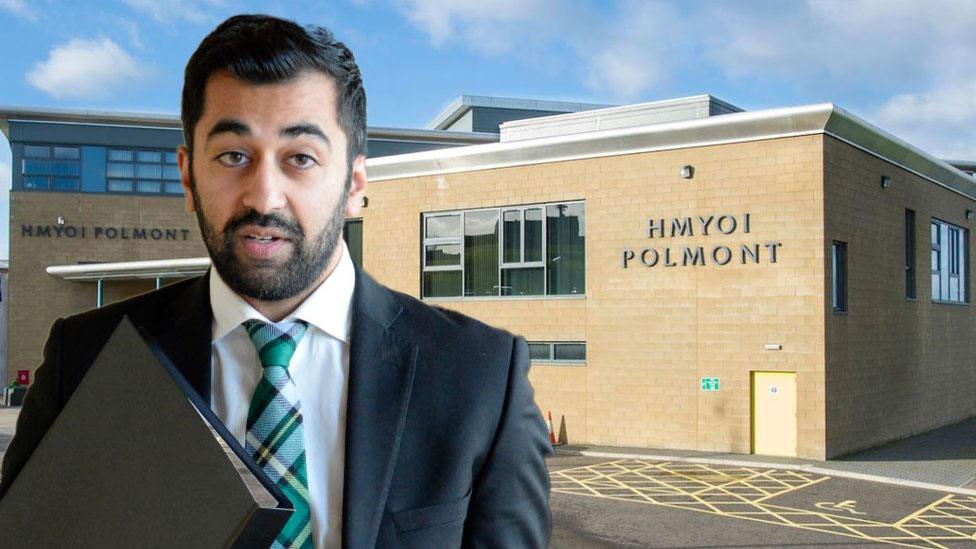Polmont review calls for stronger strategy to cut suicide risks
- Published

A review ordered after the deaths of two young people in custody has called for the creation of a stronger suicide and self-harm strategy.
Katie Allan, 21, and 16-year-old William Lindsay died at Polmont Young Offenders' Institution last year.
The review did not examine the specific circumstances of their deaths.
However, it said social isolation should be minimised, external - particularly for those on remand or in the early weeks of a custodial sentence.
The report, by the Chief Inspector of Prisons for Scotland, also found "systemic interagency shortcomings" in communications and the exchange of information about young people entering and leaving Polmont.

Katie Allan's parents say staff at Polmont failed to heed their warnings

The report made a total of 80 recommendations, including the creation of a bespoke suicide and self-harm strategy for young people.
Chief inspector Wendy Scott-Grieben said: "What has become clear in the evidence review and accompanying academic research is that being traumatised, being young, being held on remand and being in the first three months of custody increases the risk of suicide."
Justice Secretary Humza Yousaf had ordered the review of mental health services for young people in custody last November.
Ms Allan died in July 2018 and in October the same year Mr Lindsay was found dead.
Ms Allans's parents have claimed that she was bullied in prison, and that prison staff failed to heed warnings that she was "vulnerable" and had a history of self-harming.

Humza Yousaf has ordered a review of mental health services for young people in custody
Solicitor Aamer Anwar, speaking on behalf of the families of Katie Allan and William Lindsay, said: "On first reading it paints a picture of widespread failures at all levels of the SPS and NHS. They regard the review as a damning indictment of Polmont for what it says, but they raise concerns on what has been missed out.
"The findings of the review repeat much of what was said in previous inspection reports in 2012, 2014, 2016, 2017.
"What is shocking is that the SPS and the governor Brenda Stewart have failed to implement much-needed recommendations. Brenda Stewart has presided over a mental health regime which cost the lives of Katie Allan, William Lindsay and others whose names the criminal justice system chooses not to remember: surely it is now time for her to go."
Mr Anwar added: "The Mental Health Review exposes the failure to deal with the culture of bullying, drugs, lack of resources, low staff morale, recruitment and retention issues, as well as communication failures on critical information being shared between the NHS and SPS that could save lives."
HMIPS also published a separate inspection report on Polmont, external on Tuesday.
It said considerable progress had been made in the last three years at the national facility for young offenders, aged between 16 and 21.
Built to house 758 prisoners, it currently holds 358 young men and 100 adult women and female young offenders.
'Leading edge'
The report said waiting times for prisoners to be assessed by the mental health team were good, and that those at risk of self-harm or suicide were identified during admission and transfer.
"Patients were supported by compassionate and skilled staff who were fully involved in their care," said the report.
Chief inspector Wendy Scott-Grieben described the opportunities offered for young people as "leading edge and impressive".
She said it was a prison Scotland could be proud of and described some of its work as "absolutely superb".

Linda and Stuart Allan, pictured with lawyer Aamer Anwar, have called for a review of the prison system
"Stand-out features are really the kind of knowledge-based, evidence-based thinking around children and young people," she said.
Ms Scott-Grieben also highlighted the staff-prisoner relationships and staff training, and added: "The opportunities they (the inmates) have here to turn their lives around are quite incredible."
Her report did highlight the low take-up of educational and training places at the Stirlingshire prison, with some educational classes half empty.
Polmont's governor, Brenda Stewart, said this was partly because half of the young people held there were on remand, and could not be forced to attend activities.
'Compassion and dedication'
Justice Secretary Humza Yousaf said the government took the mental wellbeing of people in prison "very seriously and while the numbers of suicides by young people in custody are small, no death should be regarded as inevitable".
He added: "Any suicide in custody is a tragedy that has a profound effect on family and friends, as well as prison staff, and my thoughts are with all those who have lost loved ones to suicide.
"Both the mental health review and routine inspection report highlight the hard work, compassion and dedication of frontline prison and healthcare staff who provide opportunities and support to young people in custody every single day.
"That dedication is clearly evidenced in the chief inspector's finding that Polmont is a 'leading edge' prison where there are respectful relationships between staff and the people in its care and an impressive range of support offered to young people. "
He said the 80 recommendation made would be given "detailed" consideration.
- Published10 November 2018
